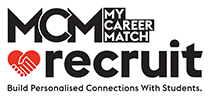The role of high school career counsellors is critical in guiding students through the complex process of career planning.
By leveraging personal profiling tools like MyCareerMatch, counsellors can provide personalised, strengths-based guidance that helps students and their parents make informed career decisions.
Best practices include integrating personal profiling into career guidance, engaging students and parents, investigating employment and economic opportunities, encouraging practical exploration, providing continuous support, collaborating with teachers and departments, and highlighting the career relevance of academic subjects.
High school career advisers are adapting to new trends to provide relevant and effective guidance in an evolving job market. Here are the top six trends:
#1. Integration of Technology and Digital Tools.
Career advisers are leveraging technology to enhance career guidance.
- Virtual Career Fairs and Workshops: Allowing students to interact with professionals and employers online.
- AI and Personal Profiling Tools: Using tools like MyCareerMatch for personalised career recommendations.
- E-Portfolios and Digital Resumes: Encouraging students to create and share digital profiles showcasing their skills and achievements.
#2. Emphasis on Soft Skills and Personal Development
- Soft skills are increasingly valued in the workforce: Soft Skills Training: Focusing on communication, teamwork, problem-solving, and adaptability.
- Mindfulness and Emotional Intelligence: Programs to develop self-awareness and stress management.
- Engaging Students and Parents: To ensure that both students and parents are well-informed about the career guidance process, counsellors should organise workshops and information sessions. Engaging parents in this process is crucial as they play a significant role in supporting their children’s career decisions.
#3. Career Pathways and Apprenticeships
- Providing clear roadmaps and practical experience for career entry:
- Career Pathways Programs: Partnering with businesses and colleges for internships and job shadowing.
- Apprenticeships and Vocational Training: Promoting these paths as valuable alternatives to four-year college degrees.
#4. Data-Driven Decision Making
- Using data to inform career guidance:
- Labour Market Information: Helping students understand job trends and salary expectations.
- Tracking Student Outcomes: Assessing the effectiveness of career programs and making improvements based on real data.
#5. Integrating Career Guidance into Subjects Taught
- Highlighting Career Applications of Subjects: Teachers should emphasise the career relevance of the subjects they teach. Every subject has potential career applications, and making these connections explicit can help students understand the practical importance of their studies.
- For instance, a mathematics teacher could discuss careers in engineering, finance, and data analysis, while a history teacher might highlight careers in law, education, and public policy.
- By doing so, teachers can help students see the broader career purpose of their education.
#6. Who Do You Want To Be?
- The shift from asking “What do you want to do?” to “Who do you want to be?” represents a profound change in the way to approach personal student career development programs.
- This paradigm shift emphasises the importance of personal identity, strengths, skills, capabilities, and values in shaping a student’s future career choices.
- Identity plays a central role in this approach. It encourages students to deep dive into understanding who they are, beyond academic achievements. This self-awareness fosters a sense of purpose and direction, crucial for personal and professional growth. By exploring their identity, students can align their future paths with their true selves, leading to more fulfilling and authentic life choices.
Through these efforts, career counsellors can empower students to pursue careers that align with their unique strengths and aspirations, leading to more fulfilling and successful professional lives.
For further information on this subject “Careers education in Australian schools: Who has access?” Hillman & Edwards, May 2024 research paper on Australian schools and how they deliver career advice.







